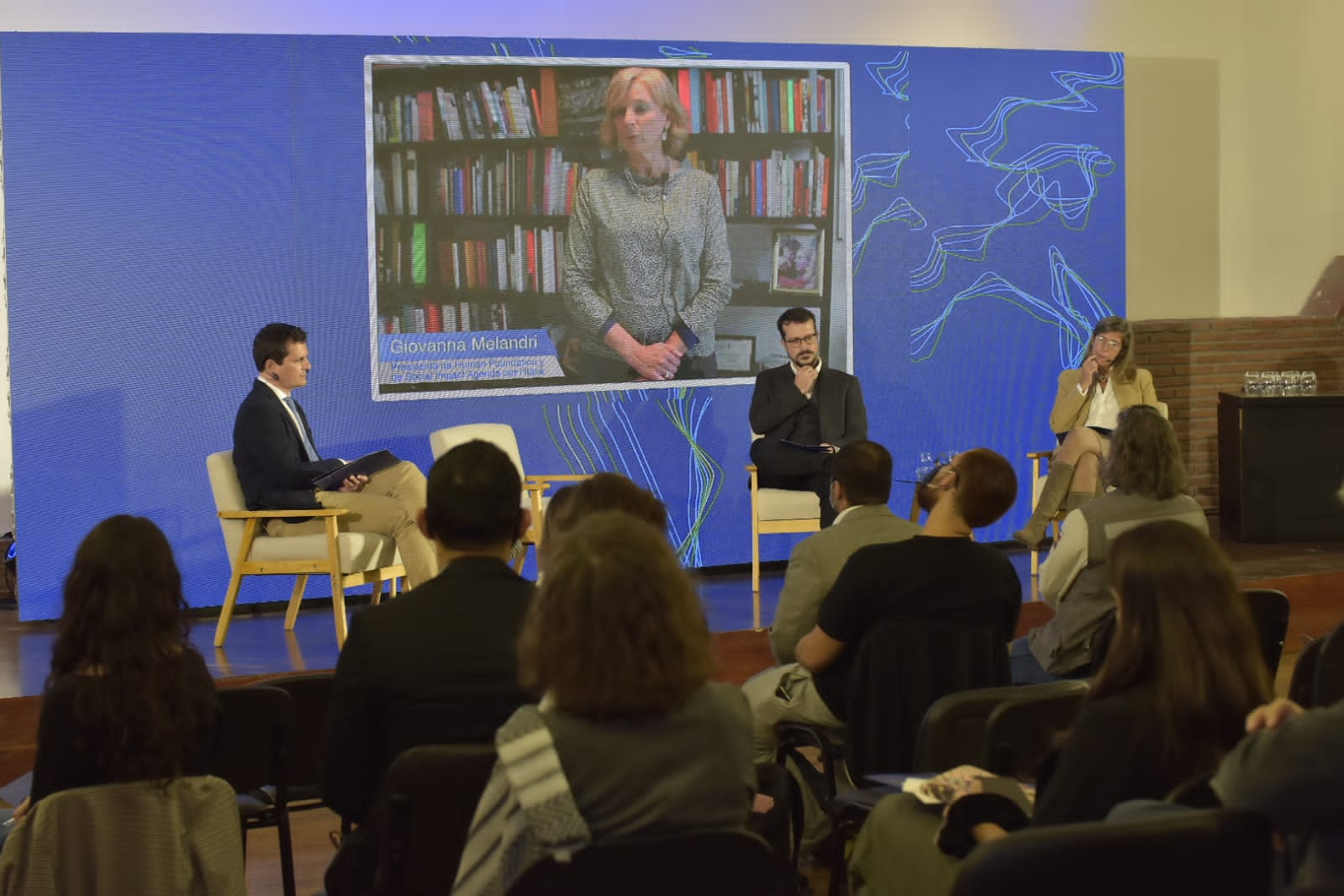The first series of seminars of the "Square of Innovation and Social Cohesion: Social Policies in the face of Global Transitions" initiative began in Santiago de Chile, under the promotion of the EU EUROsociAL+ Programme through its Social Policies area coordinated by IILA.

Foto: Juan Pablo Valenzuela
Attended by several national and international authorities, the seminar “For an eco-social transition. Euro-Latin American dialogue on the challenge of social policies in the ecological transition” began under the organisation of the European Union Programme, EUROsociAL+, and the Interdisciplinary Centrer for Public Policies of the Alberto Hurtado University of Chile, in alliance with the Chilean Agency for International Cooperation for Development of the government of Chile and the European Social Observatory.
One of the main issues discussed at the meeting was concern about the transition to an economy where sustainable development models entail significant social costs which, if not identified and reduced, will deepen the existing inequality in most countries, particularly in Latin America and the Caribbean.
Regarding this point, the head of cooperation of the European Union Delegation in Chile, Ewout Sandker, said that, “If we focus on the challenges of social policies in the ecological transition, we can agree that these challenges are pressing, critical and strategic insofar as they mean that we need to enter into agreements to achieve fairer societies that protect natural heritage without which life on the planet, as we know it, will not be feasible,” adding “we hope the new social contract will lead to a new climate-neutral Europe to reverse the negative impact of climate change in Chile and in many other countries in Latin America.”
In addition, the secretary general of the International Italian-Latin American Organisation (IILA), Antonella Cavallari, said that “the IILA has made environmental sustainability a central area of our agenda. Not only is it an objective, but it is also a dimension that permeates our actions in fields such as gender equality, social cohesion, and SMEs”. She also highlighted the value of this type of seminars since “we are on our way to completing the current phase of the European euro social programme and want to do this as well as possible with a view to the future and in particular to the challenges of innovation facing social welfare policies in light of the great changes we are experiencing in Latin America and Europe”.
The under-secretary of social services of the Ministry of Social Development and Family of Chile, Francisca Perales, discussed these social changes while opening the event, saying that “it is essential to consider social cohesion something that determines social policy in Chile. We have been discussing the fact that that one of our strategic lines for the Ministry is to build a welfare state where social policies revolve around social cohesion, to foster collective welfare and be able to adapt to the challenges of the 21st century where, precisely, the water and climate crises also affect inequalities among the inhabitants of the territories”.
The Under-secretary of Labour, Giorgio Boccardo, also addressed the national situation. In his speech he emphasised “the need to incorporate a feminist perspective, to work to create decent jobs and, therefore, to ensure that the transitions that the planet and the country need are just and a challenge for everyone. As a State, as a Government, as a Ministry of Labour and Social Welfare, we share these principles and challenges as part of our government programme”.
Meanwhile, the Academic Director of the CIPP and director of the School of Economics and Business at the Alberto Hurtado University, Eduardo Saavedra, asked “how Latin America will be able to make the transition from the extractivist model when world demand continues to be for products that Latin America regularly generates and sends unprocessed” giving the situation of lithium in Chile as an example. “It is difficult for us to replicate Korea`s capacity to innovate and make the lithium batteries that are required today,” he added.
Finally, the executive director(s) of the Chilean Agency for International Development Cooperation (AGCID), Enrique O’Farrill, highlighted the importance of the work done by EUROsociAL, saying “it has been an indisputable support for the development of more inclusive, equitable and democratic public policies, allowing good practices to be shared with European experts who contribute their experience and training for a positive effect on the changes that Chile needs to move towards more sustainable and inclusive development in Latin America”.
He added that Chile “is going through changes that impact the economy, means of production, the environment and society. It is increasingly important to consider horizontality and social inclusion as the basis for the transition to development, involving local communities and civil society, steering public policies towards more sustainable consumption and production”.
To conclude, the director of the Alberto Hurtado University, Eduardo Silva, said how pleased he was that seminar had dealt with such important issues for today’s society. “The meeting highlighted different ways of approaching problems, the socio-environmental crisis, inequality, poverty, future challenges. And the academic sector has a role to play in dialogue with the other players. I hope that our Centre for Public Policies, CiPP, continues to provide opportunities for reflection in the future,” he said.
The activity held in the main hall of the Alberto Hurtado University is part of a series of seminars being organised in the region. The next webinars are scheduled for 22 April in Buenos Aires, Argentina and 26 April in San José, Costa Rica, and will address care systems and challenges in the working world.
News story by Valeria Fuenzalida, communication expert



